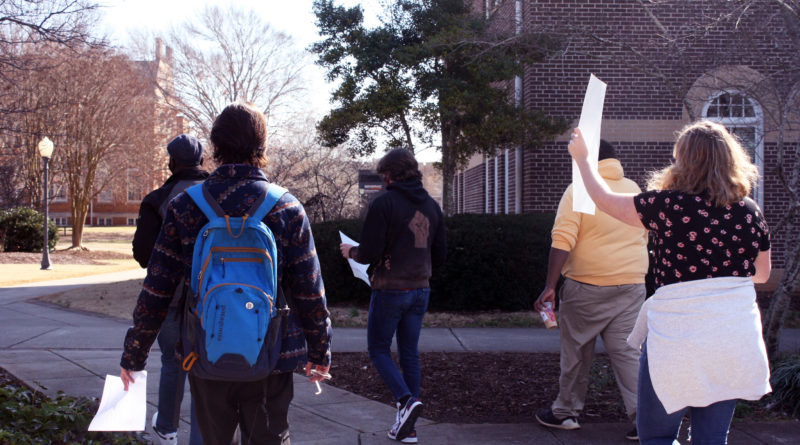BSA hosts protest to raise student voices on minority issues at MC.
“We’ll walk hand in hand,” goes the second verse of the gospel, “We Shall Overcome,” a key anthem of the civil rights movement and the song that began the protest at noon on Wed., Feb. 10, 2021 at Maryville College—hosted by the Black Student Alliance (BSA) and joined by many others. However, in order to maintain the spread of COVID-19, protestors had to remain six feet apart at all times—proving that not even a pandemic can disarm ….
The protest was organized with the intention of bringing awareness to student concerns about diversity on campus and MC’s treatment of black, Indigenous, people of color (BIPOC) students.
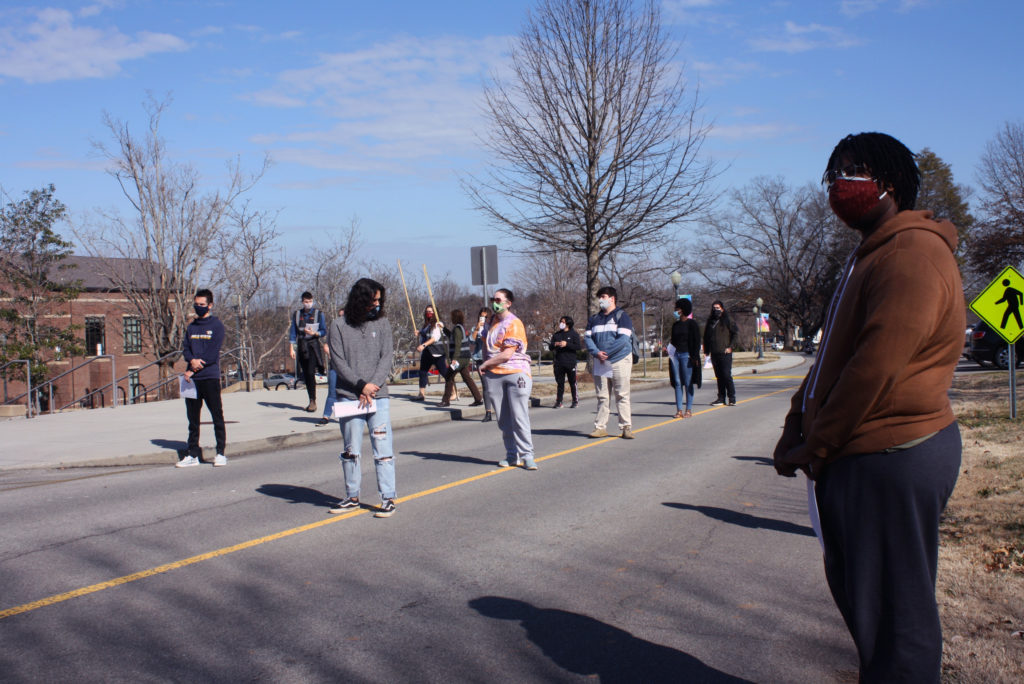
Photo by Katie Conner.
“My hope for the protest was to not only make administration listen, but it was also to give other students the courage to speak out about their concerns,” said BSA President Yana Macon. “The protest only covered a handful of concerns, but there are others who feel that they are overlooked by the college, as well. Thus, I hope that in the coming months, more students will be encouraged to speak out.”
Speakers at the assembly included emcee and BSA President Yana Macon, MC senior CJ Bryson, SGA senior senator Alijah Lawson, BSA Vice President Jason Nix and Latinx Student Alliance President Alexa Maqueo-Toledo. Each of them had a different message for Maryville College, but one resounding theme in each of their speeches was a call for real, progressive change.
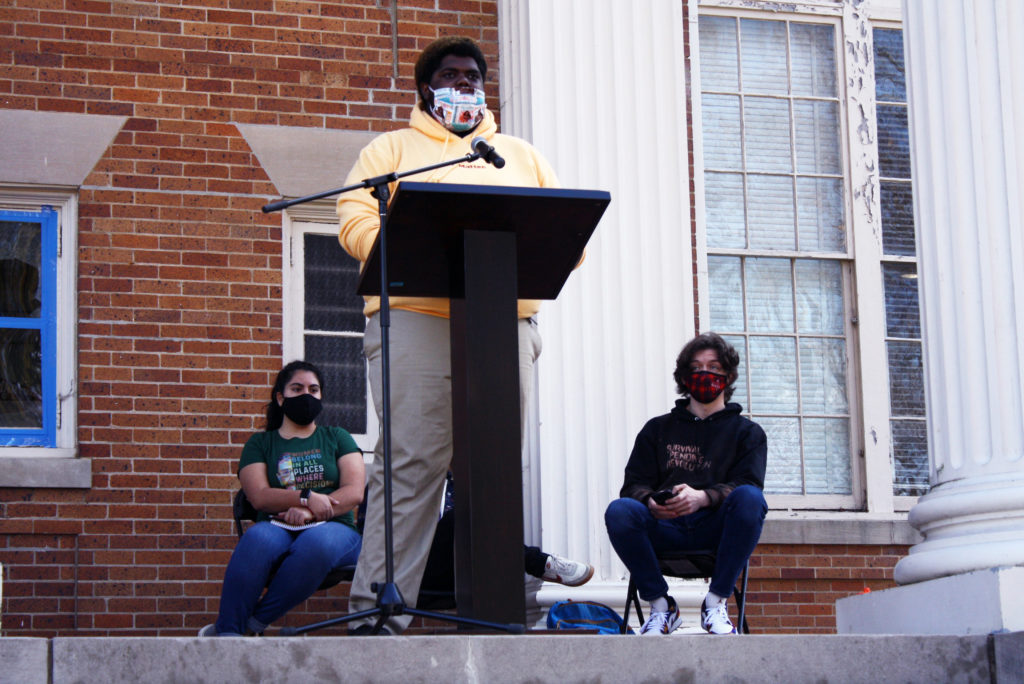
Photo by Katie Conner.
“I think MC should reach out to its students and actually plan for change,” said Macon. “I believe it is very easy to hear students of color and show empathy, but students are now calling for change. Many of the concerns mentioned at the protest can be easily corrected; it’s simply a matter of if the college desires to make these changes and when.”
“The problem is that this college uses the language of liberation—utter freedom—and yet doesn’t do all it can to provide that liberating education to the most oppressed people in this country,” said Nix in his speech at the protest. “Isn’t our college’s slogan, ‘Do good on the largest possible scale’? And it seems quite apparent that we’re falling short.”
Though the event was hosted by BSA, protestors’ concerns included those for all BIPOC groups on campus. Alexa Maqueo-Toledo is a Deferred Action of Child Arrival (DACA) recipient and had several things to say about MC’s lack of resources for other DREAMers and Latinx students like her.
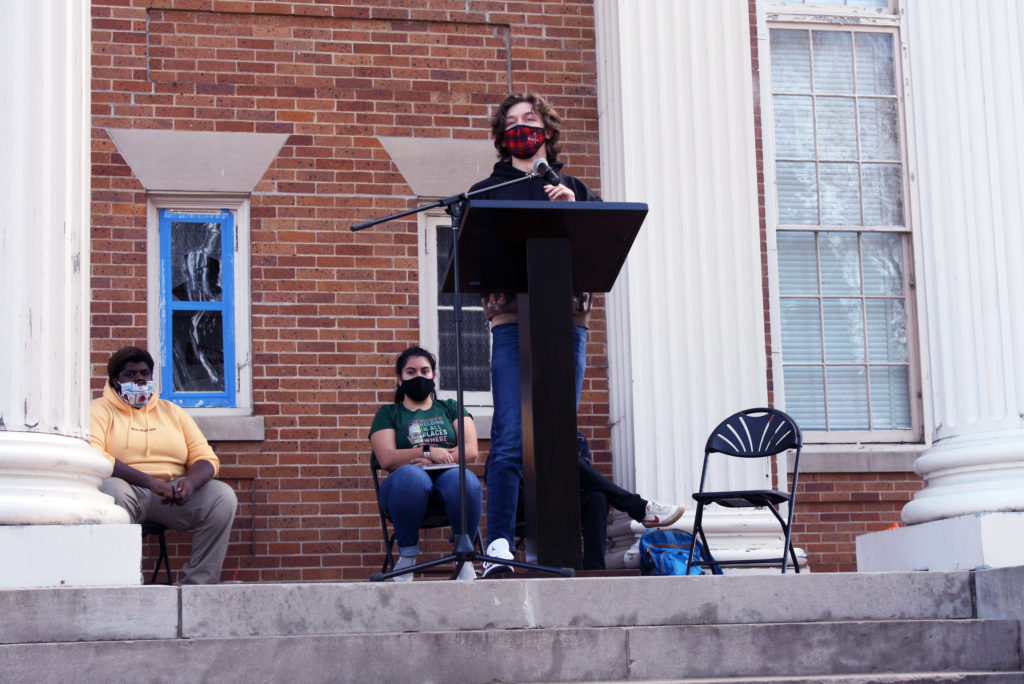
Photo by Katie Conner.
“I love this campus, I do. That’s why I continue to be involved, why I’m part of the Ambassador program—to bring more students in. But Marvyille College does a lot of work to bring DACA, undocumented students and DREAMer students to this campus, and then just leaves us here,” said Maqueo-Toledo.
“I think that MC needs to start actively listening to our concerns, not just hearing them,” continued Maquo-Toledo. “In my last three years, I have had many conversations and meetings with different faculty and staff members. But like I’ve said in my speech, it just stayed at words with no actions behind them. It’s time for administration to put action behind what they say.”
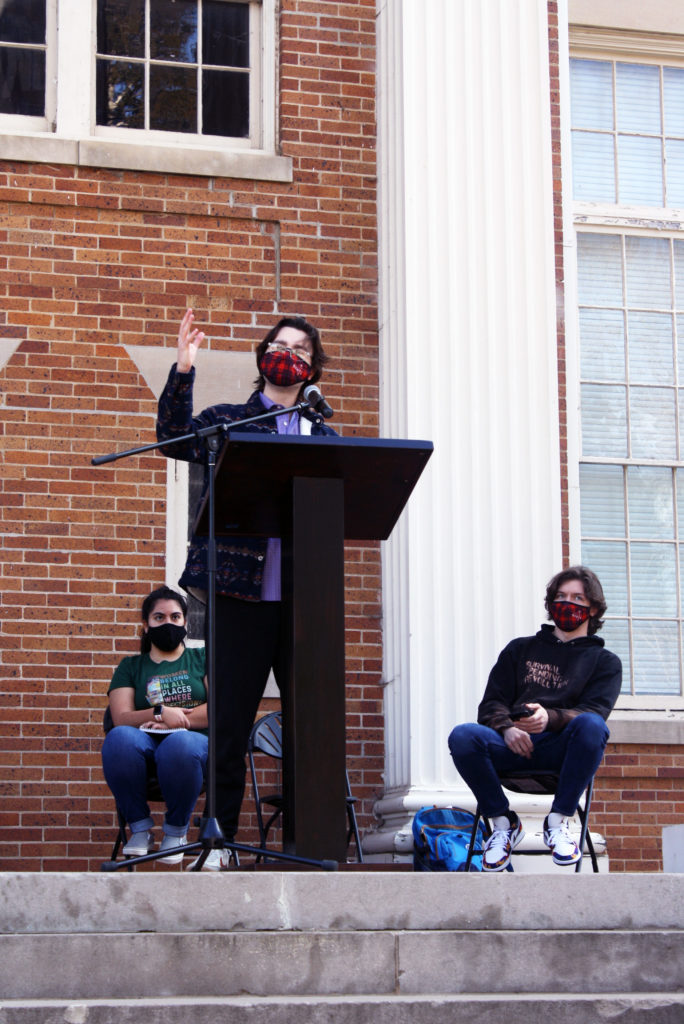
Photo by Katie Conner.
Though MC strives to be a safe community for DREAMers like Maqueo-Toledo, it is clear there are many ways in which the institution must improve.
“I think the college currently fails its BIPOC students in 3 ways,” said Macon. “The first way is listening but not understanding. There have been several students who have gone to administration with their issues only to be told that they’ve been heard with no action to follow. The second way is that many of the college’s initiatives target some BIPOC students and not others. I admire the things that the college has attempted to do for its black students, but we are not the only group on campus that requires attention.”
“The third and final way is that I feel the college does these things for recognition and not for the betterment of its BIPOC students,” continued Macon. “As one of the speakers at the protest mentioned, Maryville College only engages in initiatives that they believe they can capitalize off of. In most cases, these initiatives are either not the ones that students are asking for or they are simply a Band-Aid to appease the students who choose to speak out.”
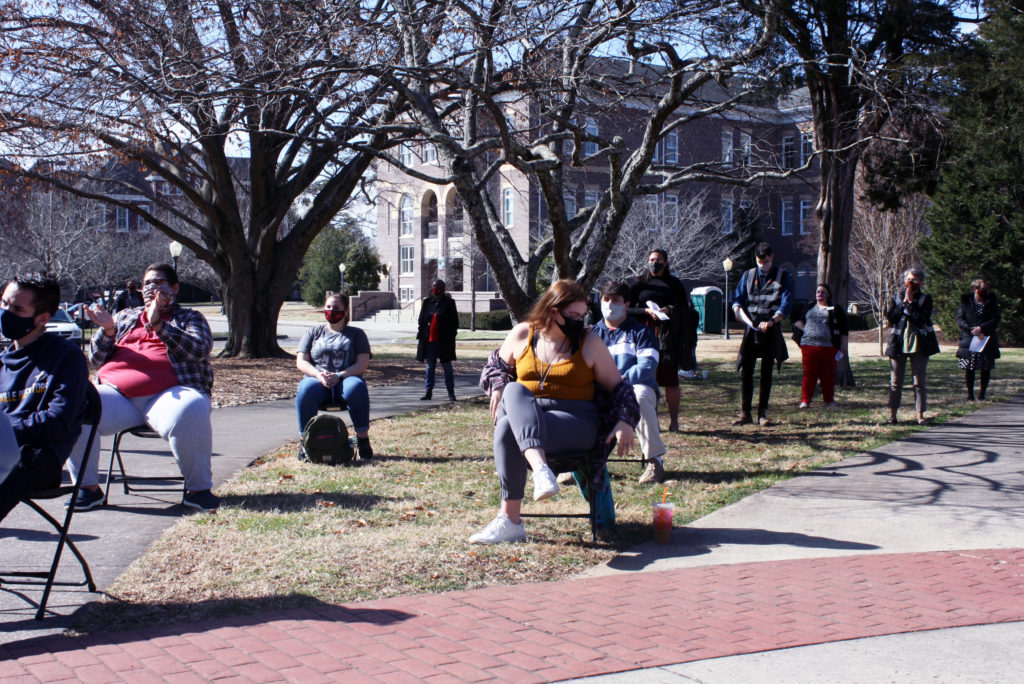
Photo by Katie Conner.
Several changes have recently been made at MC in order to increase campus diversity, but there is more work to be done. Administration may listen to student concerns, but the question is; when will MC see real change?
Those interested in supporting the increase of diversity and resources for BIPOC students should monitor the college’s daily Today@MC email where upcoming BSA and Center for Diversity and Inclusion events will be posted.

